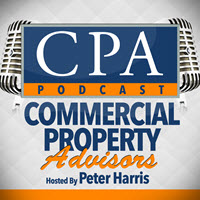As apartments are how I earn my income, I pretty much go over numbers every single day. They’re either my financials or somebody else’s. While I’m meeting with property managers or customers, the attention is on numbers every time – earnings collected, negligent income, income we will never receive, vacancy calculations, and money available in the operating account at the end of the month, just give a couple examples. Even after all of this time, I am still not a “numbers person”. I do not feel passionately about them but to review them thoroughly and recognize them is an essential requirement in running a business lucratively and dependably.
Here are 2 extremely imperative things when going over numbers on your apartment investment BEFORE you purchase. Then next I will share 2 very significant things to lookout for after you buy.So, BEFORE you purchase any apartments or even when you’re assessing a deal, take a careful look at these 2 things:
Number 1 FINANCIAL thing to look at:
The actual income, which is not the agent’s “proforma” earnings from his pamphlet. Proforma income is best-case, ideal situation earnings, this is not genuine earnings, don’t use it. In fact, totally disregard it. On every occasion you have monetary data from the agent or seller, ask where it came from. Did it come from an accountant? Did it come from the property manager’s software? Those two are used often and are pretty good places to start. But if you pick up a colorful flyer or handwritten data, or gives the look like it was made up, halt right there and probe this question – does the profits shown here match what’s stated on the property’s tax returns? This is a smart question! Which one would you lean towards believing: an agent’s or seller’s “imagined” income statement or a tax-return displaying the revenue? You know the answer to this question!
Number 2 FINANCIAL thing to look at:
The operating costs over the last few years. If you were to do a deal at this exact moment, acquire expenses for 2013, 2014, and 2015 year-to-date. Compare every year’s costs and search for the following: reliability in the yearly total expenses, huge variations of any one expense (such as electric or any utility), and any other expenditure that you don’t comprehend. What I have discovered to be true nearly 90% of the time (that’s 9 out of 10!) is that the costs given to you are what I consider to be too low for standard operations. This is done to make the property seem like it’s accomplishing more than it really is. So, as an alternative I want to give you a few rule of thumbs I use to hypothesize overheads in EVERY deal I view at BEFORE I purchase. For 5 units to 20 units, I track my expenses at 35% of the active gross earnings. And for 20 units to 50 units, I track my expenses to be 40% of the effective gross earnings. And lastly, from 50 units to 100 units, I track my expenses to be 45-50% of the effective gross earnings. Throughout the years, I have discovered two truths about those two thumb-rules: one, agents continuously give expenses that are below the rules and two, the largest blunder inexperienced investors make is underrating the costs.
![What-is-Rocket-Science[1]_opt](http://www.peterharrisrealestate.com/wp-content/uploads/2015/10/What-is-Rocket-Science1_opt.jpg)



